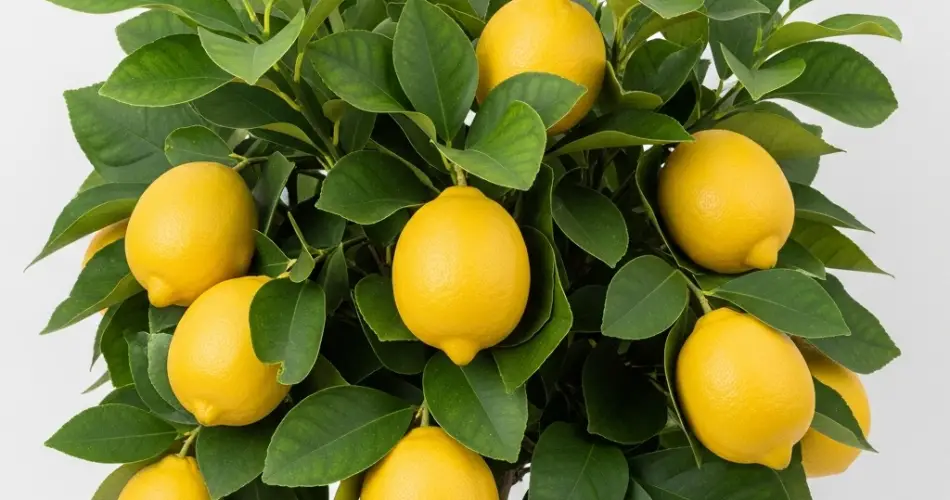Lemons aren’t just for the kitchen—they’re a secret weapon in the garden as well. Packed with natural acids, antibacterial properties, and powerful aromas, lemons can solve a variety of common gardening problems. Whether you’re dealing with pests, poor soil, or struggling seedlings, this humble fruit might just be the natural solution you’re looking for.
Here are four amazing and practical ways to use lemons in your home garden that can help plants thrive and keep unwanted guests at bay.
1. Lemon Peels as Natural Pest Repellent
One of the simplest and most effective uses of lemons in the garden is pest control. Citrus peels, particularly from lemons, can help repel a variety of garden nuisances including ants, aphids, and even cats.
How to use it:
-
Collect lemon peels and chop them into small pieces.
-
Scatter the pieces around the base of plants where pests tend to gather or enter.
-
For ant trails, rub fresh lemon juice directly on the affected area and place lemon peels nearby to disrupt their scent trails.
The strong citrus scent confuses insects and masks the pheromones many pests use to navigate. It also naturally deters cats from using garden beds as litter boxes, making lemon peel a safe and eco-friendly barrier.
2. Lemon Juice to Adjust Soil pH
Many garden plants thrive in slightly acidic soil. If your soil is too alkaline, lemon juice can be used to lower the pH naturally and gently, without resorting to harsh chemical treatments.
How to use it:
-
Mix the juice of one lemon with a liter of water.
-
Use this mixture to water acid-loving plants like hydrangeas, blueberries, rhododendrons, and azaleas.
-
Apply this treatment once every few weeks and monitor soil pH with a simple testing kit to avoid over-acidification.
This method is especially helpful in regions where tap water is high in calcium or lime, which can gradually increase soil alkalinity over time. Lemon juice acts as a gentle, organic acidifier.
3. Lemon Shells as Biodegradable Seed Starters
Lemon halves can be used as mini seed-starting pots that not only hold soil and seeds but also nourish seedlings as they grow. These biodegradable containers can be planted directly into the ground, where they decompose and enrich the soil.
How to use it:
-
Cut a lemon in half and scoop out the pulp.
-
Fill each half with potting mix and place one or two seeds inside.
-
Keep them on a sunny windowsill or in a greenhouse and water as needed.
Once the seedlings are established and ready for transplanting, simply plant the entire lemon half into the garden soil. The decaying lemon shell will provide nutrients and improve the soil’s organic content.
This method is both environmentally friendly and cost-effective, eliminating the need for plastic seed trays while giving your plants a nourishing head start.
4. Lemon-Based Garden Cleaner
Keeping garden tools and containers clean is essential to prevent the spread of disease and fungi. Lemon’s natural antibacterial and antifungal properties make it an ideal cleaning agent, especially for organic gardeners who want to avoid synthetic chemicals.
How to use it:
-
Cut a lemon in half and sprinkle salt or baking soda on the cut side.
-
Use it to scrub garden tools, pots, and surfaces.
-
Rinse thoroughly with water and dry to prevent rust.
This natural cleaner is especially effective at removing plant sap, dirt, and mild rust stains from tools. Plus, the fresh lemon scent is a pleasant bonus.
Bonus Tip: Lemon Peels in Compost
Lemon peels can be added to compost in small amounts to help balance pH and add nutrients. However, moderation is key—too many citrus scraps can slow down the composting process due to their acidity. Chop peels finely to aid decomposition and mix them well with other compost materials.
Final Thoughts
Lemons are a surprisingly versatile and powerful tool for gardeners. From pest control to soil conditioning, seed starting to natural cleaning, this simple fruit offers multiple solutions that are sustainable, affordable, and safe for both plants and people.
The next time you’re squeezing a lemon in the kitchen, think twice before throwing out the peels. With just a little effort, you can repurpose them into something truly valuable for your garden. Try these methods and discover how lemons can bring life and balance to your outdoor space—naturally.



